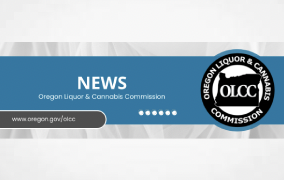Well spotted by Lex Pelger
You can read all his other amazing discoveries here. https://www.cannabinoidsandthepeople.whitewhalecreations.com/
SOURCE
https://pubmed.ncbi.nlm.nih.gov/39054993/
Abstract
Background: Interest in cannabis-based medicines has risen importantly in recent years due to the wide range of potential uses. On the other hand, delta-9-tetrahydrocannabinol (THC) impairs driving performance and other safety-sensitive tasks. Under the Swiss law, use of cannabis with a THC content of at least 1% is generally prohibited. However, the Swiss Parliament has decided to lift the ban on cannabis-based medicines from 1 August 2022. Hence, exceptional authorisation from the Federal Office of Public Health is no longer required for cannabis-based medicine prescription. Accordingly, general practitioners may prescribe these medicines (e.g. ‘magistral preparations’, i.e. a medicinal preparation prepared on prescription by a pharmacist). On the other hand, prescribing physicians must inform their patients that cannabis-based medicines may affect momentary ability to drive and general fitness-to-drive.
Materials and methods: The positioning of cannabis as a legitimate medical treatment produces some tensions with other regulatory frameworks. A notable example of this is the so-called ‘zero tolerance’ drug driving legal frameworks, which criminalise the presence of THC in a driver’s bodily fluids irrespective of impairment. On the other hand, it has been observed that there is little evidence to justify the differential treatment of patients taking cannabis-based medicines compared with those taking other medications potentially impairing driving performances.
Conclusions: The aim of this paper is to briefly discuss current Swiss legal issues concerning drivers who are prescribed medicines containing cannabis, as well as to update prescribing physicians on relevant issues and the best guidance to offer their patients.
Keywords: Fitness-to-drive; Prescription; cannabis-based medicines.
Similar articles
-
Medicinal cannabis and driving: the intersection of health and road safety policy.Int J Drug Policy. 2021 Nov;97:103307. doi: 10.1016/j.drugpo.2021.103307. Epub 2021 Jun 6.PMID: 34107448
-
Medical cannabis and driving.Aust J Gen Pract. 2021 Jun;50(6):357-362. doi: 10.31128/AJGP-02-21-5840.PMID: 34059836
-
Cannabis-based medicines for chronic neuropathic pain in adults.Cochrane Database Syst Rev. 2018 Mar 7;3(3):CD012182. doi: 10.1002/14651858.CD012182.pub2.PMID: 29513392 Free PMC article. Review.
-
Assessment of driving capability through the use of clinical and psychomotor tests in relation to blood cannabinoids levels following oral administration of 20 mg dronabinol or of a cannabis decoction made with 20 or 60 mg Delta9-THC.J Anal Toxicol. 2005 Jul-Aug;29(5):327-38. doi: 10.1093/jat/29.5.327.PMID: 16105257 Clinical Trial.
-
[Cannabis-derived medicines for the treatment of chronic pain : Problems resulting from medical appraisals in the experience of the Medical Advisory Board of the Statutory Health Insurance Funds North].Schmerz. 2019 Oct;33(5):437-442. doi: 10.1007/s00482-019-00397-1.PMID: 31531729 Review. German.


















